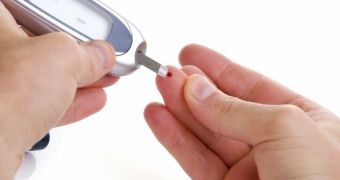The discovery of a new liver hormone stands to revolutionize the type 2 diabetes treatment options currently available on the market. More precisely, this hormone might one day render insulin injections obsolete.
Writing in the scientific journal Cell, the researchers responsible for identifying this new liver hormone explain that the latter compels the body to produce more insulin-secreting cells than it normally would.
Experiments carried out on mice have shown that, when the animals were exposed to this hormone, their insulin-secreting pancreatic β cells would proliferate roughly 17-fold within a rather limited time frame.
“It’s rare that one discovers a new hormone, and this one is interesting because it’s so specific. It works only on β cells and it’s so robust and so potent,” study leader Douglas Melton said.
Should the researchers succeed in replicating the achievements of these experiments in humans, those affected by type 2 diabetes might be able to quit injecting themselves with insulin several times per day and turn to taking the hormone once a week, once a month or even once a year. Daily Mail informs us that the hormone now argued to offer new treatment options to type 2 diabetes sufferers is known to the scientific community as betatrophin.
By the looks of it, the hormone can also be found not just in animals, but also in the human liver.
Apart from its helping people keep their diabetes under control, researchers hope that the hormone might one day serve to roll out a method of halting the development of the condition altogether.
“Our idea is relatively simple. We would provide this hormone, the type 2 diabetic will make more of their insulin-producing cells and this will slow down, if not stop, the progression of their diabetes,” researcher Douglas Melton summed up his and his colleagues plans for this hormone.
Apparently, the hormone is to be tested on humans in just three years' time.

 14 DAY TRIAL //
14 DAY TRIAL //